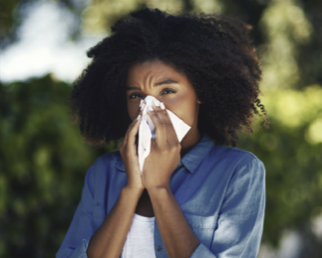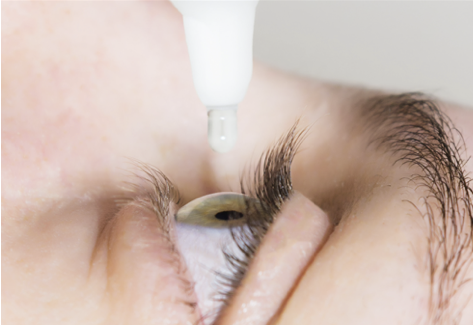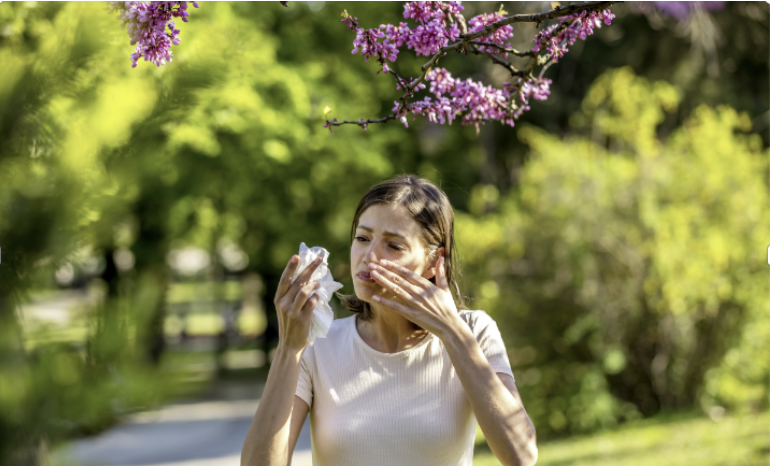Are your eyes itchy and watery for part of the year? You are not alone! With warmer weather and shorter winters, the allergy season is getting longer. Generally, the early culprits are snow mold and tree pollen in the spring. The summer brings grass pollen and weeds into the mix until the fall. On top of that, the smoke from wildfires adds even more irritants to the air! According to Health Canada, up to 20% of the population suffer from allergies. Allergies can cause trouble all year long if they are related to dust, animal dander, or mold.
What are common seasonal allergy symptoms?
- Nasal congestion
- Sneezing
- Itchy eyes, ears, or palate

What is allergic conjunctivitis?
Allergic conjunctivitis primarily involves itchy, burning, watery eyes with or without other allergy symptoms present. Many allergy sufferers use over-the-counter allergy medications including pills, nasal sprays, and eye drops. Sometimes these products do not offer complete relief or may help some symptoms but not others. Oral antihistamines can dry out the eyes and make your ocular allergy symptoms worse! Often over-the-counter eye drops do not offer enough relief and prescription drops may need to be considered. Consult with your optometrist to help you get the relief you need.

5 tips to reduce allergy symptoms:
- Limiting exposure to allergens (including wearing glasses/sunglasses)
- Washing the face/hands after contact with allergens
- Instill preservative free eye drops
- Apply a cool compress
- Avoid eye rubbing
What if my eye gets really swollen?
Acute allergic reactions can also occur if you get some grass or an animal hair in your eye. This often results in a lot of swelling of the eye lids and the conjunctival tissues. In this case, it is best to see your optometrist, especially if you can’t remove the offending object.

What if the skin around my eyes is red and flaky?
Another type of common allergic reactions is called contact dermatitis. It is seen on the skin of the eyelid but can affect skin elsewhere. This is usually from direct contact with a particular chemical or allergen. Most often it is from cosmetics, creams, lotions, perfume, soaps/cleansers, laundry detergent, fabric softener etc. In these cases, removing the allergen is the best option for long term relief. Prescription drops and ointments can be used to control the symptoms and signs including – redness, flaky skin, swelling, irritation, burning and itching.

Ocular allergy has quite a variety of signs and symptoms, so if you are unsure about your red, itchy eyes be sure to consult with your optometrist! In Alberta, these types of exams are usually covered by Alberta Health Care.




